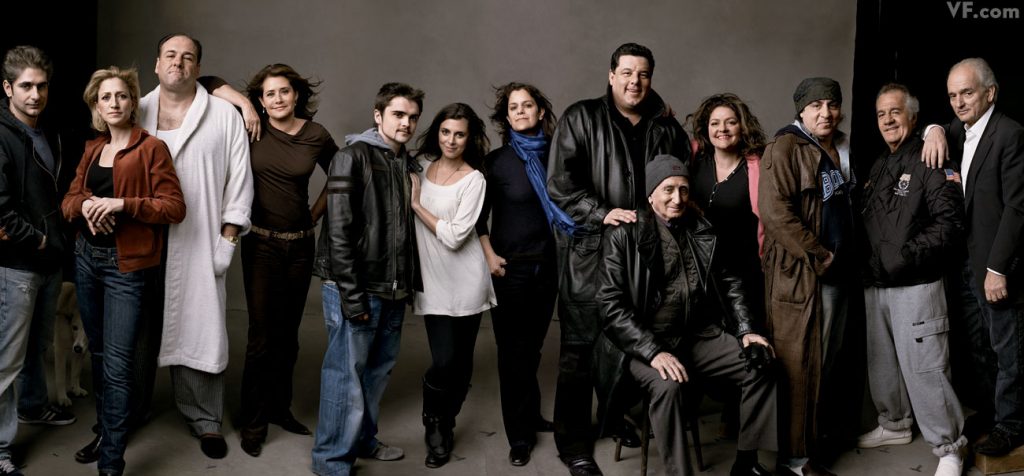So for starters what is a split season?
It’s when a certain number of episodes air, with a significant break in the middle, before the last batch of episodes air. In many cases these episodes will be christened SEASON NUMBER A, and SEASON NUMBER B, and when combined usually make up a reasonable amount of episodes to constitute one whole season. You’ll often see this practice during a show’s final year, but it can happen at any point.
**It should be noted that this is a different thing entirely from the Fall Premiere/Winter Premiere hype that occurs on network television now a days. That’s due to the seasonal scheduling of shows from September to May and I will discuss that in another post.
So why does this happen?
There’s a number of reasons networks and streaming platforms tend to do this, but all of them pretty much come down to monetary values.
It’s all about the Benjamins
When shows are picked up initially most actors are signed to roughly a three year deal, and if that show becomes a hit their new contracts will be negotiated going into season four. Actors will tend to negotiate for different deals, and time lengths so as shows begin to wind down the series run chances are the actors involved are up for some sort of contract renegotiation. As a way of keeping dollars in check, studios will negotiate a whole season at a certain pay, then sell it off to the viewers and networks as two seasons or two half seasons. Crafty right? They’re essentially getting a buy one get one free on their popular products.
HBO worked this angle during the final run of The Sopranos. The final season, season 6, had a total of 21 episodes which is almost double that of any their other seasons which clocked in at 13 episodes.

By the time The Sopranos was winding down every member of that cast was a hot property due to the show’s insane popularity, and the accolades bestowed upon them during the run. So if HBO had wanted to make two separate seasons they would have had to negotiate TWO separate contract deals for everyone involved. To avoid the extra expense they will have negotiated a longer shoot schedule for season 6, and paid a little extra money for everyone’s time, but still would have saved millions because it was technically a single season negotiation.
It’s so hard to say goodbye…. to the money
Another reason is just not wanting to see that show go. In the vast television landscape right now if you have a hit show, scream about it from the mountain tops and make as much money off it as you can. But eventually the good times will end, and it’s then that networks and studios start to panic about what will come along next to replace that show’s popularity and of course its revenue stream. So instead of airing one long season as say, a farewell season, networks opt to split that into two parts hence keeping their cash cow on the air for just a little longer.

This is best showcased with AMC and the final season of Breaking Bad. The final season only had 16 episodes but they were aired in two eight episodes chunks from July- September 2012 and then August-September 2013. Yes, one season was aired nearly a year apart.. ridiculous right? Not to the networks and studios. In that year they had time to find a suitable replacement for their beloved franchise, and start negotiating with the BB team for a spinoff – which of course ended up being Better Call Saul which started airing in February of 2015.
Going for gold!
There’s also the case of playing the Emmy and Awards system that will decide a show’s seasonal fate. If the chances of winning accolades are higher during the next awards season round, then it makes sense to air your show then.
AMC, which has become a master of the split season, did this with Mad Men‘s final season. They didn’t want two have two of their top shows vying for gold against each other, Breaking Bad was in the middle of it’s swan song and Bryan Cranston was the red hot Emmy winner, so they opted to split the season down the middle. Airing the first half of the Mad Men‘s 14 episodes from April- May 2014 and the second half a year later thus ensuring Hamm would have one Emmy season sans Cranston. And that gamble paid off because Jon Hamm walked away with an Emmy in September 2015.

**I know what you’re going to ask Breaking Bad finished seven months before Mad Men, so why would Cranston and Hamm be vying against each other? Because Emmy eligibility runs from June 1st through to May 31st of the following year. So while BB ended it’s run in September 2013, MM would still be within the Emmy seasonal period airing in April 2014.
A few ifs, ands, or buts
While the above comprises most of the logic behind split seasons, there are a few other things such as actors availability, creative concerns, and the good ol’ hype train. The longer people wait for a season, the more in demand it becomes – just ask any fan of Game Of Thrones.

So while we as viewers find the split season format extremely annoying, I can’t see it being phased out in the near future, if at all. It makes business sense, and well it is the Entertainment industry and at the end of the day is a business.
What Are Alternatives?
You hate split seasons so much, so what can you do? The easiest answer is wait til the show ends then binge it all til you run out of snack foods, but that’s not always ideal. I mean half the fun of television is discussing it with friends, family, and other fans, and in this day and age where actors, writers and showrunners are online chances of you not seeing a spoiler are very low.
So here’s my thoughts..
The rise of binge watching is here to stay, people love the fact that they can pick and choose when they watch things and as more and more streaming platforms become available the more this is going to happen. So I think in cases where seasons are filmed in their entirety- they should be released online for those who want them.
NBC did this a few years ago with their David Duchovny series Aquarius. They made the entire first season available before it hit the airwaves, and you know what? It was almost a 50/50 split on viewership. The availability of the entire season online had very little impact on the show’s overall ratings, it just became another way to view it.
The major demographic for binge watching is 30’s and below, while older generations tend to wait for shows to hit their usual night and time slot and there’s nothing wrong with either viewing habit it just comes down to what you’re most used to.
Do I think this will happen? Probably not, but who knows for sure. As the tech savvy generation begin to take hold of higher up positions in networks and studios we may see a shift in the way television seasons are viewed and released, but all that will take time.
In the mean time we’re going to have to just wait for the final 4 episodes of Unbreakable Kimmy Schmidt to hit Netflix… sigh

This topic was suggested by one of my wonderful Twitter followers Joe Latka, so thank you so much for the suggestion Joe! If you have any questions about television, things you liked to see me write/rant about or something you think I need to check out please let me know on Twitter @comedy_girl I love hearing from people!
Previously On Ash Loves Tv...
Up Next On Ash Loves TV...